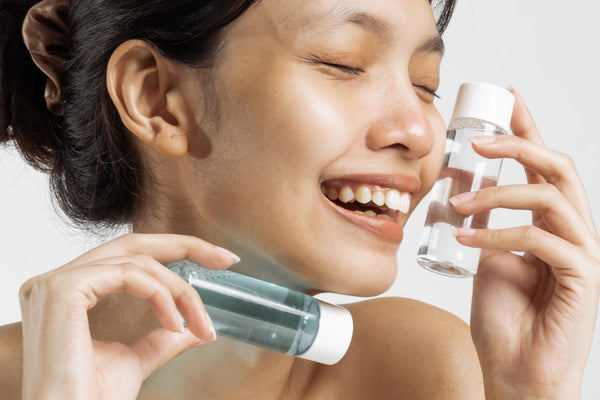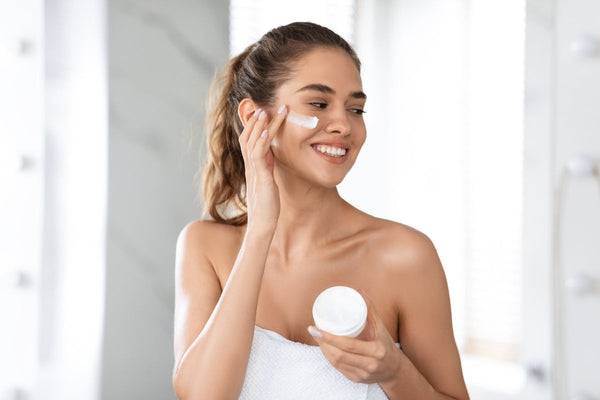
Baby Eczema: What Every Parent Should Know About Managing Flare-Ups
December 17, 2024
Picture this: Your baby’s cheeks, which are usually soft and kissable, suddenly turn red and rough. The itchiness makes them cranky, and you’re left feeling helpless.
If this sounds familiar, welcome to the world of baby eczema—a common skin condition that many parents deal with but few fully understand.
The good news? While eczema can feel overwhelming, there are plenty of ways to manage it and soothe your little one’s sensitive skin. Let’s dive in!
What is Baby Eczema?
First things first, what is baby eczema, and why does it happen?
Eczema, or atopic dermatitis, is a chronic skin condition that causes red, inflamed, and itchy patches. It’s super common in babies and kids, affecting up to 20% of children worldwide.
Eczema usually shows up before a baby turns one, and the most common areas are their cheeks, scalp, arms, and legs. If you’ve ever noticed baby eczema on the face, you’re not alone—it’s one of the most frequent places it appears.
So, what causes it? It’s a combination of genetics and environmental factors. If you or your partner have a history of allergies, asthma, or eczema, there’s a good chance your baby is predisposed.
But environmental triggers like harsh soaps, dry air, or even changes in weather can also spark a flare-up.
What Causes Flare-Ups?

Eczema flare-ups can be triggered by a variety of factors. While every baby is different, here are some common culprits:
- Irritants: Fragranced soaps, detergents, and certain fabrics (like wool).
- Allergens: Dust mites, pet dander, and pollen can all worsen symptoms.
- Weather: Cold, dry air in winter or excessive sweating in summer.
- Food Sensitivities: Some babies may react to certain foods, especially if they’re allergic to them.
For more details on triggers and how to identify them, check out this guide on eczema triggers.
How to Manage and Prevent Baby Eczema Flare-Ups
Managing eczema in kids and babies starts with creating a skincare routine and avoiding triggers. Here’s how you can help soothe your little one’s skin:
- Moisturize, Moisturize, Moisturize: The cornerstone of eczema care is hydration. Apply a rich, fragrance-free moisturizer at least twice a day, especially after baths. Look for creams with ceramides, which help repair the skin barrier. Need product recommendations? Explore natural and organic skin care options for eczema that are gentle yet effective for sensitive skin.
- Keep Baths Short and Sweet: Bathing can strip your baby’s skin of its natural oils, so keep baths lukewarm and no longer than 10 minutes. Use a gentle, soap-free cleanser, and avoid scrubbing. After the bath, pat their skin dry (don’t rub!) and immediately apply moisturizer.
- Dress Them in Eczema-Friendly Clothes: Soft, breathable fabrics like cotton are your best friend. Avoid wool or synthetic materials that can irritate the skin. Also, be mindful of layering during colder months to avoid overheating.
- Identify and Avoid Triggers: Pay close attention to what might be causing your baby’s flare-ups. Did you recently change laundry detergents? Introduce a new food? Keeping a journal can help you pinpoint triggers and avoid them in the future.
For more detailed tips, check out this guide from the Oasis Community.
Diet and Baby Eczema
Can food really make a difference? Sometimes!
While food isn’t the root cause of eczema, certain allergies can worsen symptoms. If you suspect a food is triggering flare-ups, talk to your pediatrician or an allergist.
Foods to Consider Avoiding
Some of the most common food allergens include:
- Dairy
- Eggs
- Soy
- Wheat
If advised by your doctor, you can try an elimination diet to see if avoiding certain foods improves symptoms.
Eczema-Friendly Foods to Add
On the flip side, some foods might help reduce inflammation and promote skin health:
- Omega-3-rich foods: Salmon, flaxseeds, and walnuts.
- Probiotic-rich options: Yogurt or supplements (check with your doctor before giving probiotics to your baby).
- Vitamin E-packed snacks: Avocados and sunflower seeds (for nursing moms or older kids).
When to See a Doctor
While most cases of baby eczema can be managed at home, sometimes you’ll need a little extra help. Consider seeing a pediatrician or dermatologist if:
- The eczema doesn’t improve with over-the-counter treatments.
- Your baby’s skin becomes infected (look for yellow crusts or oozing).
- They’re extremely uncomfortable or unable to sleep due to itching.
- A doctor can recommend prescription treatments like medicated creams or antihistamines to help manage symptoms.
Natural and Organic Skin Care for Baby Eczema
If you’re looking for safe, natural ways to care for your baby’s skin, you’re in luck. The right products can make a world of difference, especially if they’re free of harsh chemicals and synthetic fragrances.
We offer a curated collection of natural and organic skin care products for eczema, including body wash. From gentle cleansers to rich moisturizers, these products are designed to soothe and nourish even the most sensitive skin.
Final Thoughts
Caring for a baby with eczema can feel overwhelming at times, but remember—you’re not alone. With the right knowledge, skincare routine, and a little patience, you can help keep flare-ups under control and your baby’s skin feeling soft and comfortable.
To recap:
- Understand what eczema is and what causes it.
- Establish a gentle, hydrating skincare routine.
- Avoid triggers and incorporate eczema-friendly foods into their diet.
- Consider natural and organic products for extra soothing care.
For more resources, check out our other helpful guides:
- Eczema Triggers and How to Avoid Them
- Top Tips from the Oasis (now POSTCARD!) Community
- Natural and Organic Skin Care for Eczema
With these tips in hand, you’re well-equipped to handle baby eczema like a pro. Here’s to smoother skin and happier days ahead!




